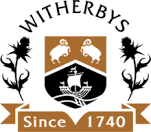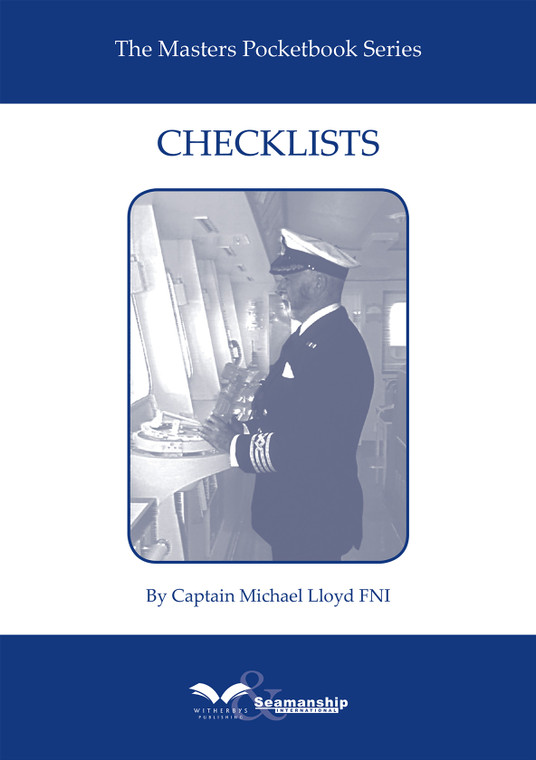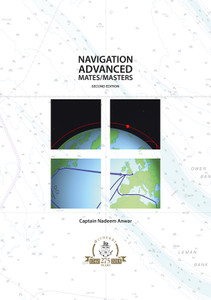
This is a practical guide for Masters and officers to help establish a routine of order and responsibility for the main onboard management systems, including safety, communications, discipline and navigation.
These checklists outline basic procedures for all ranks to ensure that critical checks and procedures are addressed and are not overlooked as new procedures are added or as crews change over. The checklists are designed to foster good communication between members of the crew and will aid the Master in delegating tasks to individuals.
The checklists can be adapted to suit whatever circumstances and personnel exist on board, ensuring maximum efficiency, safety and a continuation of command during handover. They cover topics such as:
- Safety
- pollution prevention
- ballast water management
- preparation for port arrival
- emergencies on board.
A ship, because of the environment in which it operates, has to be well ordered. This means that set routines have to be established for the various functions and procedures to ensure maximum efficiency and the safety of all onboard. With the general system of relieving, most commercial ships exist in a state of constant change of the officers responsible for its management. An established routine of order and responsibility ensures a smooth transition and a continuation of the management while the new officer settles into the ship and his position. Changes can then be made within the established procedure and with the acceptance of all others who may be affected by them.
Under the International Safety Management (ISM) Code, a vessel must operate within the framework and requirements of the Safety Management System (SMS). It is not intended to replace any system but to provide further support, reference and thought for those who wish to improve their systems onboard.
Another reason is it avoids conflict in areas where responsibilities overlap, or where there are ‘dead’ zones, with each officer thinking that the other is dealing with a certain problem when, in actual fact, no one is taking responsibility.
While not intended to conflict with laid down company procedures, which are often written as general regulations for all ships in their fleet, such a local management system enables adaptation to the circumstances onboard that particular ship, at that time.
Finally, it allows the command to change without disruption and provides the new Master a picture of how the ship management is presently functioning. This makes it easier for him to work within that organisation and to change whatever parts of the management he wishes should he choose to do so.
This book contains shipboard management procedures for all of the main management functions. These procedures are written and allocated to responsible officers purely as an indication of how responsibility can be allotted. They can be adapted to whatever circumstances and personnel exist onboard.
Ship and engine maintenance have been excluded as they fall within the province of these departments and each department should have its own management functions.
It is impossible to cover all functions or to have a procedure for all eventualities, especially in such a complicated environment as a ship, but by using these procedures and common sense, the ship and those on it will benefit from an organised system.
Why am I using checklists? Well, ‘senior moments’ do not only occur with seniors, they happen to us all regardless of age. That cold feeling you get when going to your cabin after clearing the port and you suddenly realise that the agent did not return the ship’s trading documents, or when you go to the cabin and see all the crew and official mail still waiting for posting and the ship is off for a forty day haul will make you realise the usefulness of lists.
Finally, I must offer thanks to Ronald Wöhrn, a Master Mariner and a Lawyer at Ahlers & Vogel, who authored the ‘Guidance to Masters’ manual and kindly allowed access to his publication for the benefit of this title on ‘Masters Checklists’.
Author’s Introduction
- Safety items
- Pollution
- Medical
- Navigation
- Cargo
- Meetings
- Communications
- Accommodation
- Personnel
- Discipline
- ISM and ISPS Codes
- Steering gear and engine tests
- Ballast water management
- Standing orders
- Preparation for port arrival
- Insurance and P&I Clubs
- Non-standard items
- Handover - arrival/leaving
- Emergency checklists
Index
Witherbys
Witherbys titles are developed using scripts developed by technical experts that are peer reviewed within work groups. Typically, they seek to improve understanding of the regulations, recommendations and guidelines issued by Industry.
Witherbys staff have significant expertise in the fields of navigation and hazardous cargoes as well as in the presentation of complex subjects in a graphic and easy to understand manner.
- Number of Pages:
- 224
- ISBN:
- 9781905331444
- Binding Format:
- Paperback
- Book Height:
- 180 mm
- Book Width:
- 120 mm
- Weight:
- 0.4 kg
- Published Date:
- June 2009
- Preview:
- Yes
- Publication Date:
- June 2009
 Witherbys.com
Witherbys.com





